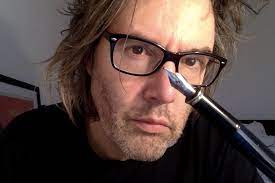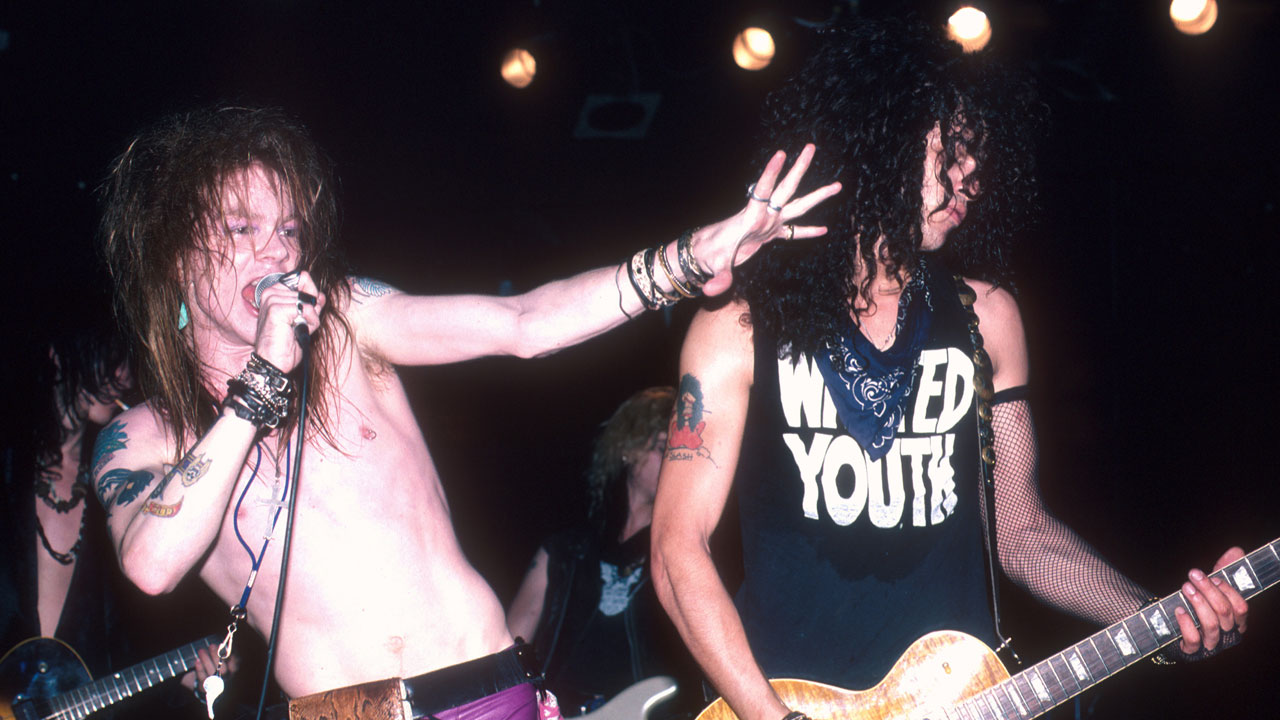The Alarm: Marching On
Few rock stars have had as much thrown at them as The Alarm's Mike Peters. But even the highs of US fame and the lows of a bitter split are nothing next to his ongoing battle with cancer
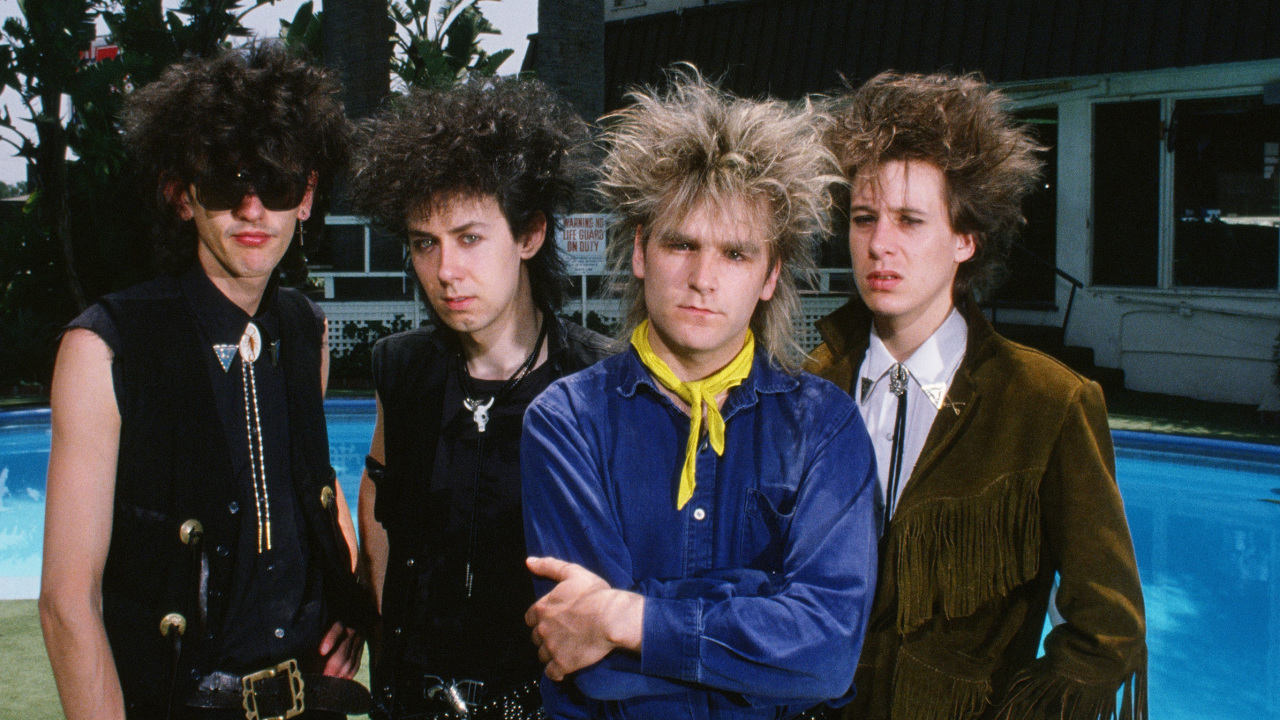
Select the newsletters you’d like to receive. Then, add your email to sign up.
You are now subscribed
Your newsletter sign-up was successful
Want to add more newsletters?

Every Friday
Louder
Louder’s weekly newsletter is jam-packed with the team’s personal highlights from the last seven days, including features, breaking news, reviews and tons of juicy exclusives from the world of alternative music.

Every Friday
Classic Rock
The Classic Rock newsletter is an essential read for the discerning rock fan. Every week we bring you the news, reviews and the very best features and interviews from our extensive archive. Written by rock fans for rock fans.

Every Friday
Metal Hammer
For the last four decades Metal Hammer has been the world’s greatest metal magazine. Created by metalheads for metalheads, ‘Hammer takes you behind the scenes, closer to the action, and nearer to the bands that you love the most.

Every Friday
Prog
The Prog newsletter brings you the very best of Prog Magazine and our website, every Friday. We'll deliver you the very latest news from the Prog universe, informative features and archive material from Prog’s impressive vault.
It’s 1996. The M1 flickers by, measured in concrete stanchions and distant towns. In the back of a people carrier taking him to play an acoustic show in South Shields, Mike Peters feels a lump in his collar-bone. He pushes it tentatively and the small ball moves up over the bone. He presses it again and it slides downwards. He moves his hand away and it resumes its original position, an unmoving bulge in his skin.
“I thought it was my lymph glands,” says Peters. “So I had a blood test. I was with the doctor, and I could see this piece of paper on the desk, and it had the word ‘cancer’ written all over it. He said: ‘I think you’ve got a 50⁄50 chance of making it, and you might not want to tell your wife because of how bad it is.’”
The doctors diagnosed him with non-Hodgkin’s lymphoma.Peters says he has never been so scared in his life. But a few months later, following contact with a faith healer, the cancer went into spontaneous remission. No one knew why. Peters thought he was free of it forever.
He was back on tour in 2006 when the cancer returned. One morning after a show and a few beers, he woke up with an erection that sent a pain shooting through his torso. The pain lasted for hours. The next time he took a drink, the same thing happened. He went back to see the same doctor, the one who had warned him that he might go into shock at the news of cancer 10 years before. This time it was doctor’s turn to look ashen.
“His face turned white,” says Peters. “He said my liver and spleen were enlarged, and I knew straight away that it had come back. I had leukaemia. To be dragged back in was terrible.”
It’s afternoon in the market town of Welshpool. In a studio a few miles down the road, Peters and the latest incarnation of The Alarm – the band he has fronted on and off since the early 80s – are recording* The* Sound And The Fury, an album of re-workings of some of the band’s songs that the singer feels might have slipped through the cracks.
For a man who has stared down death twice and is still undergoing treatment for his most recent cancer, Peters looks remarkably well, with a thatch of blond hair and a few lines around that familiar grin. The exploding mullet and cowboy shirt have gone, but he still looks like that bloke who sings in The Alarm. Literally a rock’n’roll survivor, it says much about his sense of humour that, in the early days of the 21st century, he formed a band called Dead Men Walking with Spear Of Destiny’s Kirk Brandon, the Damned’s Captain Sensible and Pete Wylie of The Mighty Wah!.
Sign up below to get the latest from Classic Rock, plus exclusive special offers, direct to your inbox!
For many people, The Alarm blew up after they performed what proved to be their breakthrough single, Sixty Eight Guns, on* Top Of The Pops*. It was September 1983 and the band had flown in from America just to record the show. Musically tight from months on the road, their performance propelled the song into the Top 20. For the rest of that decade, their call-to-arms anthems and unashamed politicking earned them an avid fan-base that still travels the world to catch them – as well as the derision of the British music press. Stirring albums such as 1984’s *Declaration *and the following year’s *Strength *tapped into the socio-political vibe being meted out by their musical peers U2, Simple Minds and Big Country. The Alarm’s statements were bold and full of bravura; they sang of a future; they sounded hopeful, if often dismayed.

The story of The Alarm really starts seven years earlier, in 1976, in the fading Welsh seaside town of Rhyl. The 17-year-old Peters lived in a house on Edward Henry Street; future Alarm bassist Eddie Macdonald grew up two doors down. Peters had bought an acoustic guitar as a kid, because Dylan played one and because they were cheaper than an electric. He listened to The Who and the Stones. Local entertainment was limited to the odd seafront performance by Mud, so Peters had to look further afield. He saw Sabbath at Birmingham Odeon ,and drove to London to see Bowie (Peters nodded off in the car park and slept through the entire show). He saw the Sex Pistols play Chester in 1976, and the Clash on the White Riot tour the following year. The Pistols made him want to play; the Clash showed him how to dress.
“I came back from that and decided to be a punk,” he says. “But I was fat, and I knew I had to lose weight to be a punk.”
By early 1977, Peters and Macdonald had their own punk group, the Toilets. They mutated into a mod band, Seventeen. That same year, they were joined by guitarist Dave Sharp and drummer Nigel Twist, both from the unfortunately monikered Quasimodo. Sharp and Twist had been together in a band in their home town of Manchester. The drummer moved to Wales with his family, and the guitarist visited to play with him when he was on leave from the Merchant Navy. As Seventeen, the four-piece released a single (1980’s Don’t Let Go), and toured with the Stray Cats, before temporarily splitting and then re-forming with a new name: The Alarm.
It was in 1981 that the band went from a standing start to a sprint. In June they played their first show as The Alarm, at the Victoria Hotel in nearby Prestatyn. A few months later they recorded their debut single, Unsafe Building, a ringing acoustic track that built to a thrumming chorus, with Peters’s plaintive and heartfelt vocal on top.
Aware that a band couldn’t survive for too long in Rhyl alone, they knew they had to move their base to a bigger city. Their options were cold, post-punk Manchester, or glamorous, rock’n’roll London. They chose the latter. A friend lived south of the Thames in Battersea; by September the four of them were living on his floor, scratching around for gigs and watching their savings fade into oblivion. They were there to work, though. No one mentioned turning back.
The Alarm had one other friend in London. Louis Parker was a Welsh nightclub entrepreneur-turned-promoter (he went on to book Nirvana’s first gig in the UK; he died from cancer in 2000). When Peters called him, Parker passed on the number of The Fall’s manager for Peters to try to get on the bill at their next show.
“I got through,” says Peters, “and this voice asked if we were anything like The Fall. I admitted we weren’t, and they went: ‘Great! We hate bands that sound like The Fall.’ We got the gig at The Venue in south London.”
A promoter from the London agency Wasted Talent turned up to the show to expressly tell them to please stop bothering her with demo tapes and phone calls. Blown away by what she saw when The Alarm played, the promoter collared the band after their set to buy them drinks. Despite her original plans, she never once mentioned that they should leave her alone.
The Alarm were were four gigs old when the breakthrough came. On December 19, 1981 they played a showcase at subterranean London club the Rock Garden. To The Alarm’s surprise, the place was rammed; The Cure’s Robert Smith was by the bar next to a string of A&R men, managers and music industry executives. Among them stood Ian Wilson, agent for the then-rising Irish rockers U2. The Alarm played with their hearts in their mouths, finished their set, staggered off stage and went back to their dressing room. While the promoter kept a string of impressed record label types outside the door, Ian Wilson told the band how much he’d like to work with them. And he was true to his word. On December 22, their phone rang. It was Wilson.
“We were packing for the trip home for Christmas,” says Peters, “and Ian went: ‘Want to play with U2 tonight?’ We had this policy that we wouldn’t support anyone any more, so I said no. Nigel, thank God, grabbed the phone, and said: ‘Of course we’ll play with U2, Ian!’”
That night at London’s Lyceum theatre, Bono watched The Alarm’s set from the side of the stage. Later he bought them drinks and told them how much he liked what they did. Unwittingly, they were making friends in high places.
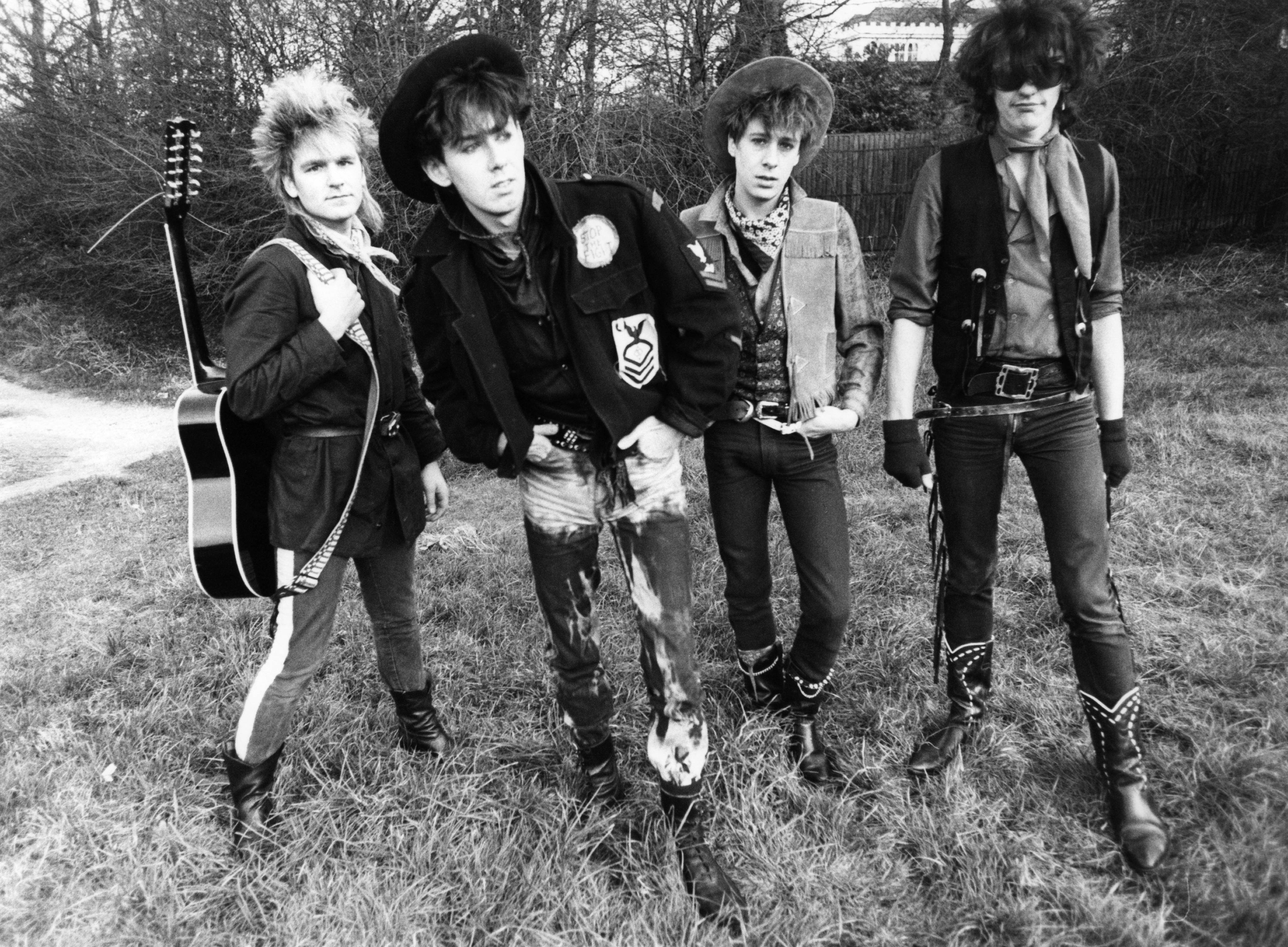
After the excitement of 1981, 1982 dawdled. The Alarm spent the year having their demos rejected by one label after another. Ian Wilson, by now their manager, sent them out on the road with anyone who would have them: Boomtown Rats, The Jam, Dexy’s Midnight Runners. It kept them busy.
Their break came via their friends in U2. The Irish band’s management were trying to convince U2 that one more American leg of their War tour would make them stars in the US They’d do it, the band said, as long as they could take out someone they liked as support. Which was The Alarm’s cue.
“Our first show was in San Francisco at the Civic,” says Peters. “Our hire truck had a 50mph limiter on it, so we got there late. Bono and The Edge met us at the door and helped us hump our gear in. I can remember a fan going: ‘That roadie looks like Bono!’ They had their caps pulled down, but they were throwing our gear up on stage.”
And so began The Alarm’s love affair with America, albeit one-sided at first. While they triumphed on U2’s War tour, they still had to put in weeks opening for US artists such as Pat Benatar.
“It was tough playing to baseball and cowboy hats who only liked 70s rock,” recalls Peters. “Punk hadn’t happened in those parts of America. But Iggy was from there, the Ramones, the New York Dolls. So there was an audience. You just had to find them.”
“They seemed so honest and hard working from a distance,” says Billy Duffy, a post-punk peer of Peters’s in Death Cult (a revamped version of the earlier Southern Death Cult), who would transform into The Cult. “Like us they were punk fans who learnt to play their instruments and were searching for something to fill that vacuum left by punk. They looked west for inspiration.”
Back in the UK, Unsafe Building and follow-up singles Marching On and The Stand hadn’t worried the charts unduly. But The Alarm’s stock in the US was rocketing. In September 1983 they headlined two nights at the Ritz in New York, and Bono joined them on stage. When they got back to London a few days later, girls screamed at Peters in the street and asked for his autograph. He did not, one of them told him, sound American at all.
Remarkably, while they had finally bagged a deal with IRS Records, they hadn’t even recorded an album yet. But when they eventually did, their debut, Declaration (1984) and the following Strength and Eye Of The Hurricane would chart on both sides of the Atlantic, ultimately selling five million copies between them. When the band teamed up with MTV in April 1986 to perform one of the first shows to be broadcast live across America, at the UCLA campus in Los Angeles, more than 25,000 people turned up, a barrier collapsed, and the band almost missed the satellite hovering overhead.
That summer The Alarm were back in London to support Queen at Wembley Stadium. But what should have been a celebration was, in Peters’s words, “weird”. Drummer Nigel Twist had spent the night before out on the tiles with INXS frontman Michael Hutchence, and had arrived home only moments before the band were due to pick him up. Twist was forced into a shower and fed coffee; he still missed some shots during what was the biggest show band had ever played in the UK. Peters admits that he couldn’t help but resent him. And, somehow, despite their growing success, The Alarm still had no money.
“I remember going to the hole in the wall after the Wembley show, and the crew guys had more cash than us,” says Peters. “You’d get home and have parents and friends going: ‘You’re rock stars, why are you broke?’”
When the band convened a few weeks later to start work on Eye Of The Hurricane, the strains were beginning to show. Sharp and Twist told Peters and Macdonald that they wouldn’t record songs the singer and bassist had written; they had to start writing together as a unit. It was a stand-off that lasted a year.
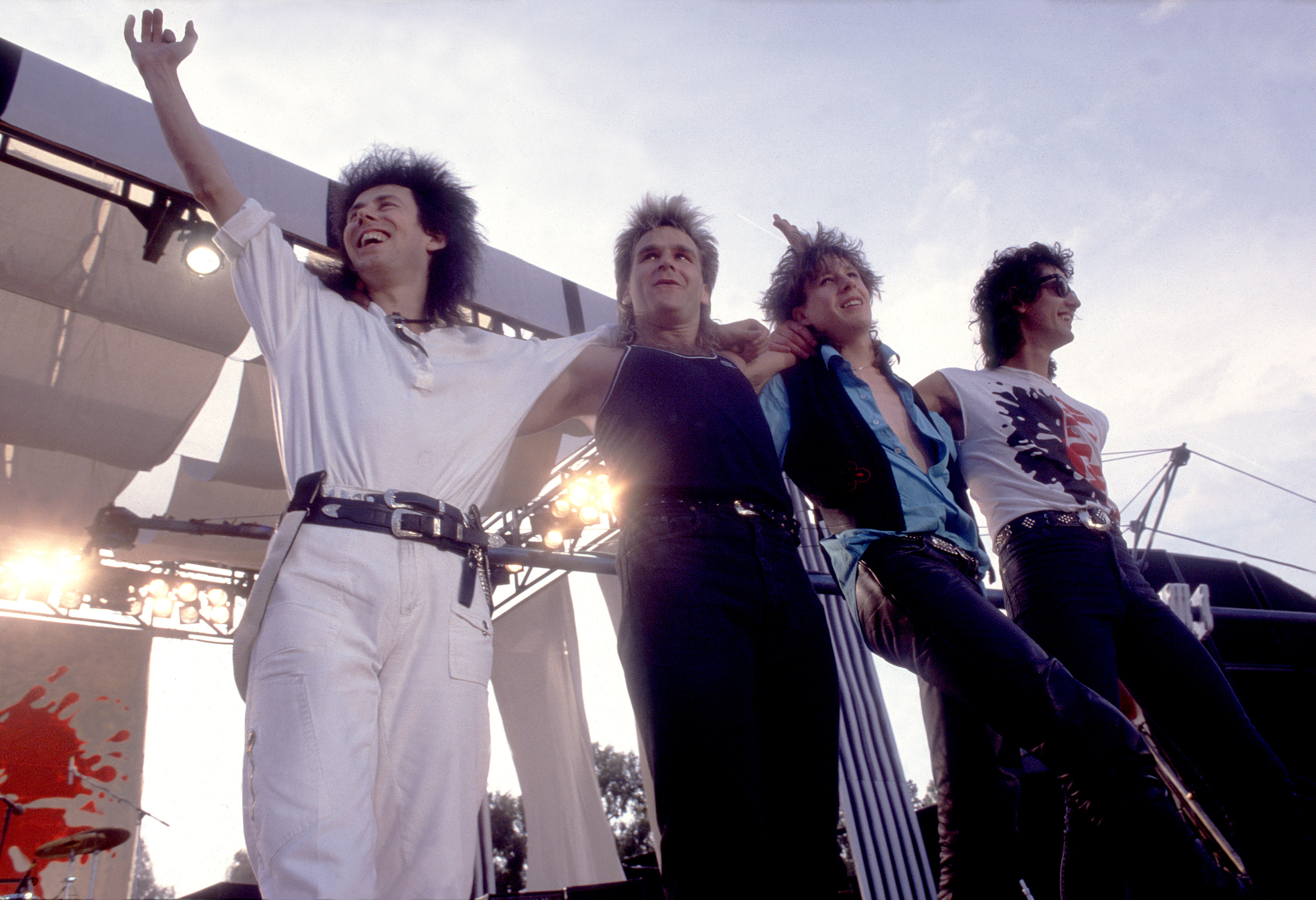
Two camps were forming: Peters and Macdonald in one, Sharp and Twist in the other. They barely talked to each other. When Sharp became smitten by Stevie Ray Vaughan after The Alarm supported the Texan guitarist, blues licks began appearing in live versions of Sixty Eight Guns and Marching On. Peters asked him to stop; the guitarist resisted. To the outside world The Alarm were flying high. They spent the summer of 1987 supporting Bob Dylan, who invited Peters up on stage to perform Knockin’ On Heaven’s Door (“It was cheek to cheek with Dylan,” Peters recalls. “Amazing.”). Jack Nicholson said hello at one show in Los Angeles, and even ex-President Jimmy Carter turned up at their gig in Atlanta.
Two years later, after releasing their fourth album, Change, Neil Young joined them on stage in New York as they encored with a cover of Young’s Rockin’ In The Free World. The band left the stage to rapturous applause. It should have been a triumph. But as they were exiting, Peters all but collapsed from fatigue. “My sister had a brain haemorrhage a few days before that show,” he says today. “She survived, but she’s never recovered the power of speech or recognition. I’d been flying back and forth from America to the UK to see her and it had taken its toll physically and mentally. I think my body just gave in.”
And things were about to get even worse. Instead of taking a planned break, they decided to make a new album, *Raw. *But tragedy struck when Nigel Twist’s stepdad killed himself in the barn in which the band rehearsed. The drummer discovered his body. Then Peters’s father died.
“Those external things, they were what broke us up,” says the singer, who admits that he was already distancing himself from his band-mates.
Macdonald takes a different view. The bassist blames himself and Peters for unwittingly creating an imbalance in the band. “We always viewed it as our band, supported by Dave and Twist,” he says. “We made it difficult for them to express themselves creatively.”
Either way, Peters’s relationship with Sharp – who had already lined up a solo tour without telling the rest of the band – was almost beyond repair. On June 30, 1991, the frontman stepped out on to the stage of Brixton Academy and announced he was leaving the band. As the show ended, he walked off stage and just drove away. The end was a relief for all of them.
“That was it for me,” says Peters. “I still find it hard to talk about.”
“The final curtain didn’t come soon enough for me,” says Macdonald, “Mike had left in spirit before we finished Raw. I think he’d agree with that.”
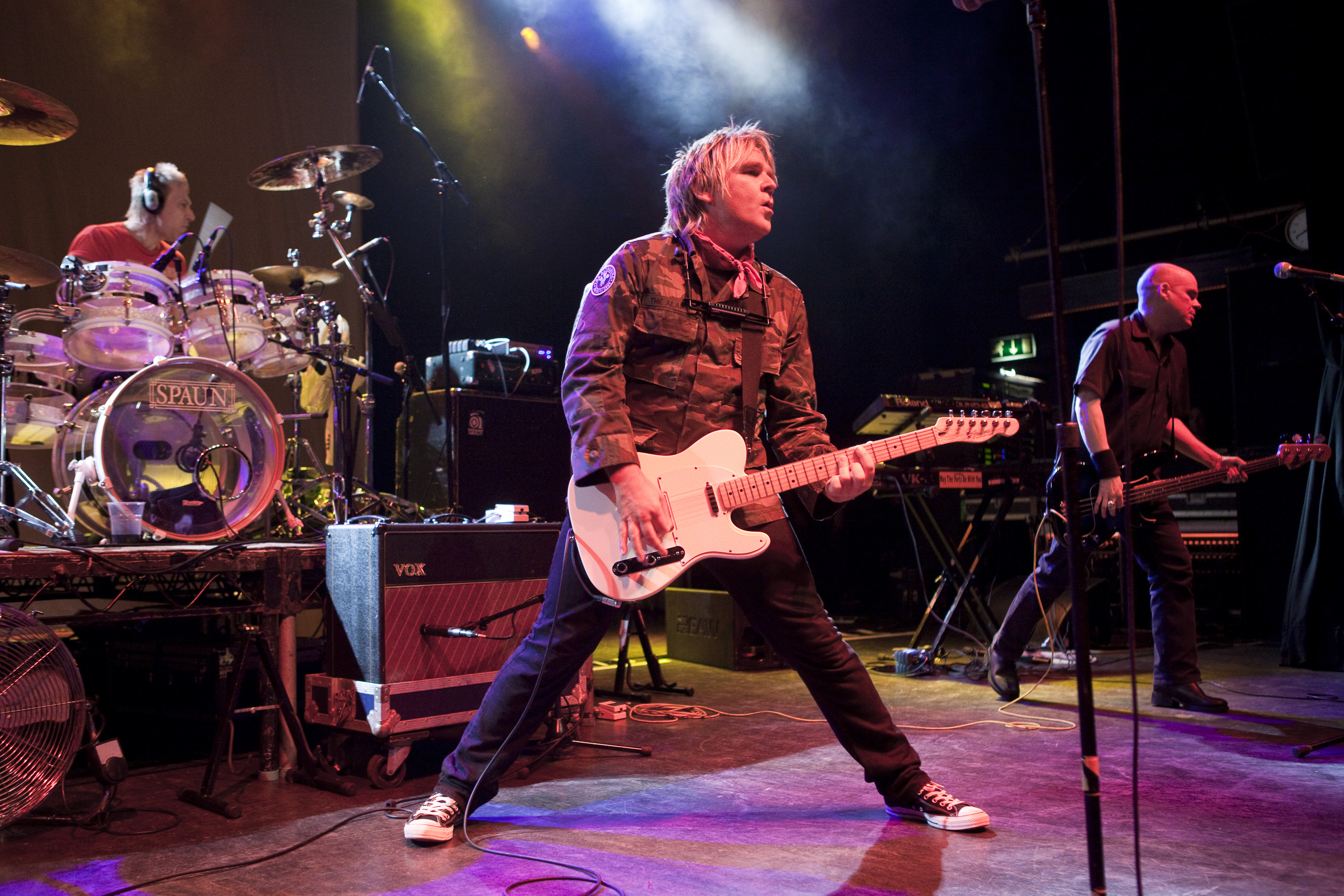
After the dust settled on The Alarm’s split, Peters moved back to Wales with his family. He released two solo singles, but waited until 1995 to record his first solo album, Breathe. He was determined to do things his own way; his first battle with cancer only emphasised that. Peters had always stayed in touch with Ian Wilson, the band’s former manager, and when, in 1996, he was diagnosed with cancer, it was Watson who suggested the idea of trying a faith healer. Peters agreed, and called a woman recommended by Watson. They talked on the phone, and the faith healer told him she was “seeing green” as they spoke. During this time they never met in person.
Peters had postponed conventional treatment to finish dates he’d already booked in the US. His doctor told him he was a fool. He was, by his own admission, terrified.
“I knew I had to focus on something or I wouldn’t get through those next few months,” he says. “I thought of Lennon wearing his army jacket, and I went down that route: go to war against the illness. I went to an army surplus store and kitted my self out in green fatigues.”
He spent six weeks playing city-to-city and wondering if he’d made the biggest mistake of his life. He flew home fearing for his life And then a miracle happened: blood tests showed the disease had reversed. The doctors had no idea what had happened. Neither did Peters.
“I thought the cancer was over then. I felt so lucky and so glad to be alive. It really fuelled the whole of my life from that point on.”
Which is why he started to do things for himself. He built up a music and DVD catalogue online, and slowly turned himself into a one-man industry, playing live and releasing exclusive albums to an eager audience long forgotten by any label. He resurrected The Alarm name in 2000, eight years after he’d instituted the yearly Gathering, which brings fans from all over the world to North Wales for a weekend of all things Alarm.
In 2004 he sent one of his songs, 45 RPM, to friends in the media without saying who it was by. The response was emphatic: it was a rabblerousing, dynamic three minutes; people couldn’t help but love it. When they asked who the band was, Peters told them they were some kids called The Poppyfields.
“We told people we managed them, made a fake video and website,” he remembers (the band miming to the song on the video were actually the young Chester punk’n’soul outfit the Wayriders).
“It charted, and we went mental. It was like *Sixty Eight Guns* all over again. Then the story broke that we’d made the whole thing up. We had CBS fly in and film us for Dan Rather (the famous American TV news anchor) in the US. It was huge. And now there’s going to be a film made about it [Vinyl, starring Phil Daniels]. It gave us a new lease of life.”
Sometimes, though, life is too good to be true. In 2006 Peters’s cancer returned.
“My doctors said that I’d probably had the same thing 10 years ago, as it’s a very similar disease to non-Hodgkin’s lymphoma,” he says. “What I have, chronic lymphocytic leukaemia, has only really been recognised in more recent times.”
Despite – or maybe because of – his illness, he keeps moving. After being diagnosed for the second time he founded the cancer charity Love Hope Strength Foundation. In October 2007, Peters and 38 other musicians, including Squeeze’s Glen Tilbrook, and Slim Jim Phantom of the Stray Cats, played a charity show at Mount Everest base camp – the highest concert ever to have taken place on land. He works hard, too. As well as The Alarm and his parallel solo career, he joined the recently reactivated Big Country, replacing the late Stuart Adamson as singer.
“Mike has a light that shines through him, and most folks who are lucky enough to spend time with him pick up on its positive radiations,” says Billy Duffy. “At least that’s been my experience.”
To hear it, Peters is shining still.
“I’m all about going with the positives and trying things, given all that has happened,” he says. “We are defined by the choices we make in life. It’s not an outcome; you take your chances.”
For more on Mike Peters and his ongoing fight to survive then click on the link below.
Philip Wilding is a novelist, journalist, scriptwriter, biographer and radio producer. As a young journalist he criss-crossed most of the United States with bands like Motley Crue, Kiss and Poison (think the Almost Famous movie but with more hairspray). More latterly, he’s sat down to chat with bands like the slightly more erudite Manic Street Preachers, Afghan Whigs, Rush and Marillion.
